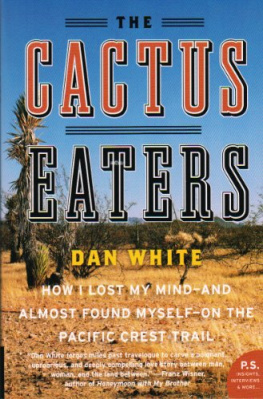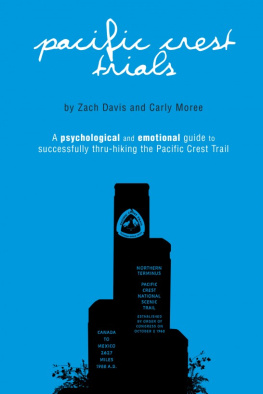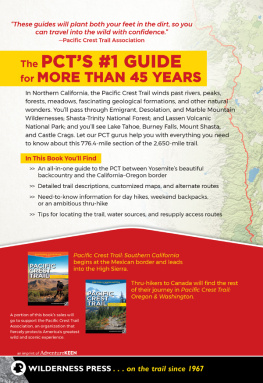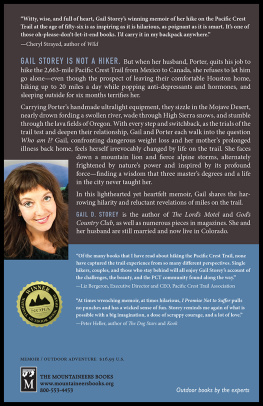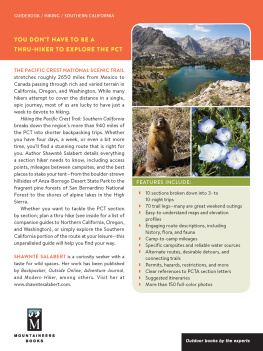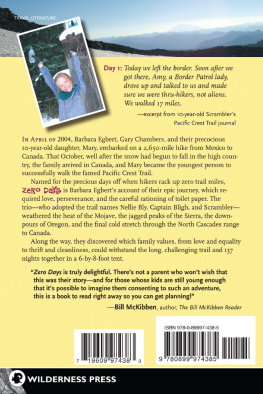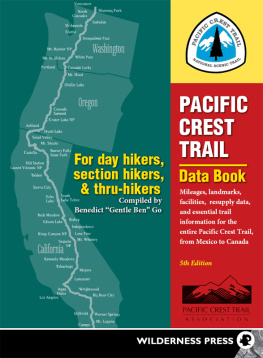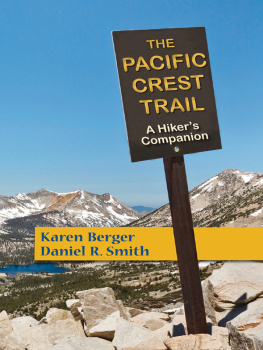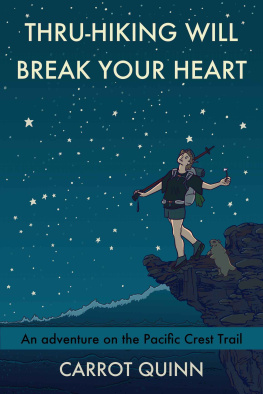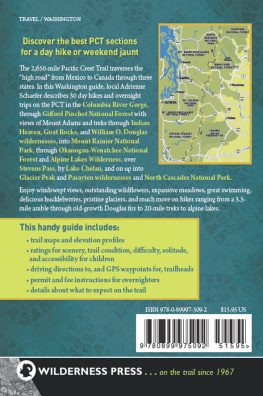Dan White - The Cactus Eaters: How I Lost My Mind-And Almost Found Myself-On the Pacific Crest Trail
Here you can read online Dan White - The Cactus Eaters: How I Lost My Mind-And Almost Found Myself-On the Pacific Crest Trail full text of the book (entire story) in english for free. Download pdf and epub, get meaning, cover and reviews about this ebook. City: Pacific Crest Trail, United States--Pacific Crest Trail, year: 2009, publisher: HarperCollins e-books, genre: Detective and thriller. Description of the work, (preface) as well as reviews are available. Best literature library LitArk.com created for fans of good reading and offers a wide selection of genres:
Romance novel
Science fiction
Adventure
Detective
Science
History
Home and family
Prose
Art
Politics
Computer
Non-fiction
Religion
Business
Children
Humor
Choose a favorite category and find really read worthwhile books. Enjoy immersion in the world of imagination, feel the emotions of the characters or learn something new for yourself, make an fascinating discovery.
- Book:The Cactus Eaters: How I Lost My Mind-And Almost Found Myself-On the Pacific Crest Trail
- Author:
- Publisher:HarperCollins e-books
- Genre:
- Year:2009
- City:Pacific Crest Trail, United States--Pacific Crest Trail
- Rating:4 / 5
- Favourites:Add to favourites
- Your mark:
The Cactus Eaters: How I Lost My Mind-And Almost Found Myself-On the Pacific Crest Trail: summary, description and annotation
We offer to read an annotation, description, summary or preface (depends on what the author of the book "The Cactus Eaters: How I Lost My Mind-And Almost Found Myself-On the Pacific Crest Trail" wrote himself). If you haven't found the necessary information about the book — write in the comments, we will try to find it.
Traversing broiling deserts, snowy mountain passes and dank rain forests on its crooked way from Mexico to Canada, the Pacific Coast Trail is an epic challenge for die-hard backpackers. White and his girlfriend, Melissa, set out, late in the season and bereft of experience, to tread all 2,650 miles of it, leaving behind lousy reporting jobs and hoping to find self-definition and a deepened relationship. (They call their trek the Lois and Clark Expedition.) Hilarious greenhorn misadventures ensueincluding the authors ill-advised chomp, while dizzy with dehydration, into a reputedly moisture-laden prickly-pear cactusthat tested their survival skills and commitment as a couple. The trail becomes less an itinerary than a world unto itself, full of squalor, discomfort and majestic scenery, and peopled by charismatic misfits and an austere cult of ultra-light speed-hikers, as the couple rely on arcane camping gear and bizarre gummy-bear-and-marshmallow diets. The wilderness authenticity the author seeks proves elusive; all journey and no destination, the story itself eventually trails off with the hero even more callow and confused than when he started. Still, Whites vivid prose and hangdog humor make readers want to keep up. (June)
Copyright Reed Business Information, a division of Reed Elsevier Inc. All rights reserved.
Review
Drawing on diaries he kept at the time, White polishes up these memories, serving them forth with brio and dash[The Cactus Eaters] brings a fresh perspective to the timeworn adventure-travel genre. -- Kirkus Reviews
In the well-written, laugh-out-loud, self-deprecating spirit of Bill Brysons A Walk In The Woods and Nora Ephrons When Harry Met Sally, Dan White takes us along for a walk on the wild side of adventure and love. I could not put it down. -- Eric Blehm, National Outdoor Book Award-winning author of THE LAST SEASON.
It is a funny, frequently harrowing, and altogether mesmerizing memoir about just how wrong a backpacking expedition can go.The Cactus Eaters is far more than a Sierra Club-approved romp. Its gorp for the soul, a fascinating and surprisingly moving testament to the call of the wild. -- Steve Almond, Boston Globe
Dan White: author's other books
Who wrote The Cactus Eaters: How I Lost My Mind-And Almost Found Myself-On the Pacific Crest Trail? Find out the surname, the name of the author of the book and a list of all author's works by series.

